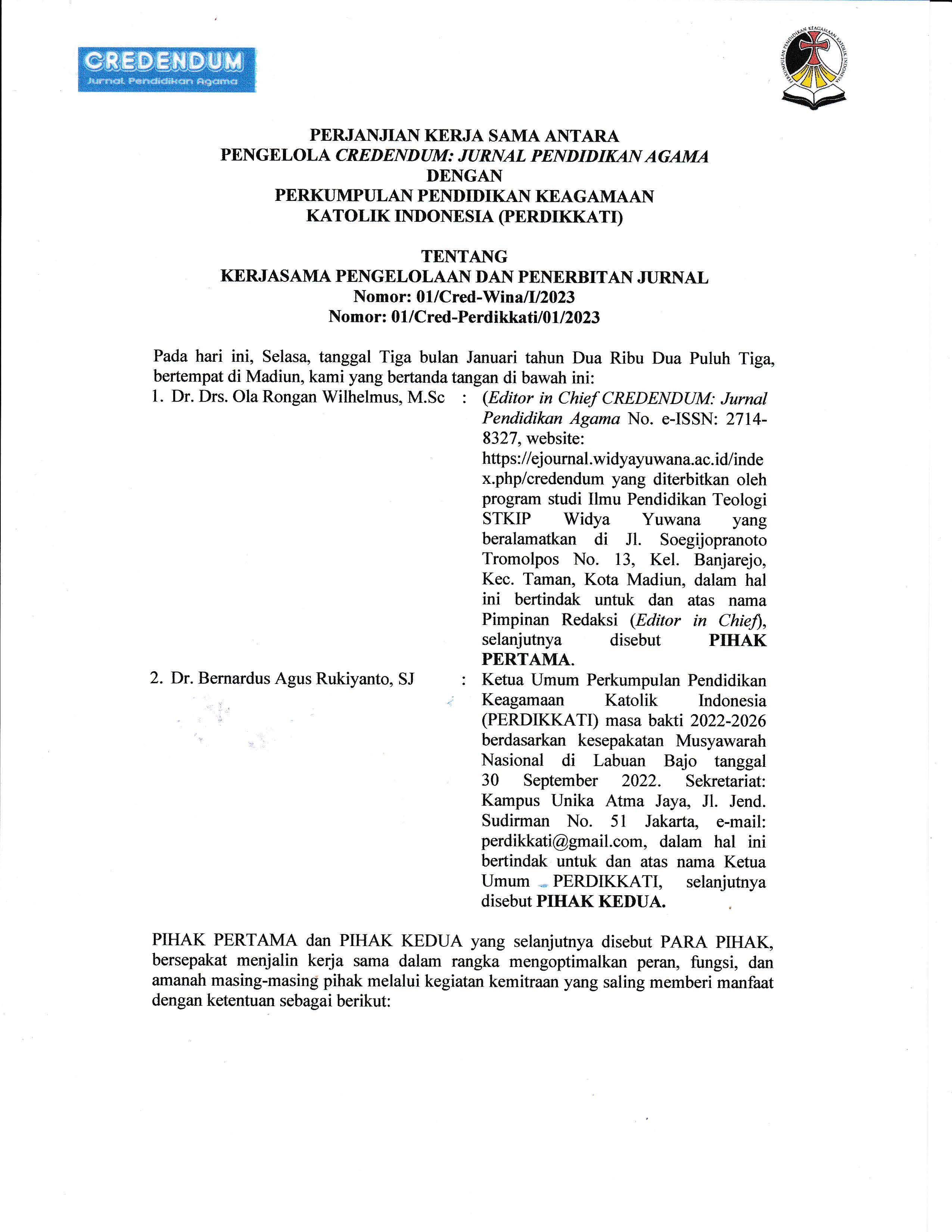PENGHAYATAN TOLERANSI BERAGAMA OLEH UMAT KATOLIK DI STASI SANTA MARIA REJOSO BLITAR DAN RELEVANSINYA BAGI MULTIKULTURALISME INDONESIA
Abstract
Indonesia is a multiculturalism country with diversity of tribes, religions, and races. These diversities were united in a motto of “Bhineka Tunggal Ika”. Diversity is a nation’s wealth to be proud of. Today’s loss of multiculturalism has sparked a conflict that is destabilizing Indonesia. Much of the conflict stems from a lack of tolerance to religious differences. Indonesia recognize six religious that verified by the government, they are: Islam, Christianity, Catholicism, Hinduism, Buddhism, and Confucius. Religious diversity encourages an attitude of tolerance to respect, appreciative, and helps one another with a spirit of brotherhood. The goal is to create a peaceful, secure, peaceful, and prosperous Indonesian. The study uses qualititative research method that deals with deep feeling of religious tolerance. Recognizing the development of multiculturalism in Indonesia, this study saw the possibility of social unrest in the name of religion. Learning from the local Catholics community of Santa Maria Rejoso, it is possible to be quixted by an act of interfaith cooperation. Studies indicate that the Catholics of the local Catholics community of Santa Maria Rejoso (100%) have heard of tolerance. Tolerance refers to social partnership, mutual respect, and mutual help. The Catholics in the local Catholics community of Santa Maria Rejoso have been animated by daily practice of religious tolerance. The percentage of the exercise of religious tolerance shows that (80%) enthusiastic of Catholics create an environment in which they are fared, harmonious and sincere. Those responses were supported by (50%) respondents who said that Catholics of different religions are like your own. In response for Indonesian multiculturalism, studies show (90%) the respondents said that they need to tolerate religious differences and (70%) that respondents strengthened the argument by saying that people live in harmony and united society.

This work is licensed under a Creative Commons Attribution-NonCommercial-ShareAlike 4.0 International License.












